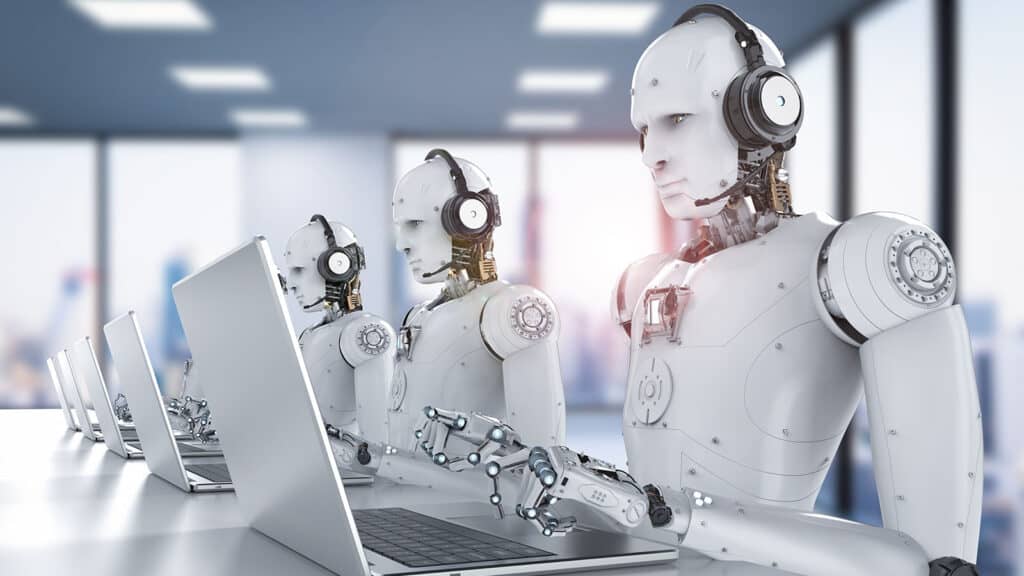Wave of the Future: AI Empowered Customer Service

Artificial intelligence (AI) is on the precipice of radically enhancing customer service and business operations. Zack Kass, in a recent article on MarketWatch, describes the transformative potential of AI in revolutionizing the way we interact with products and services. AI-fueled customer service software promises to dramatically reduce phone hold times, translating to substantial savings, given that Americans spend an average of 13 hours annually on such holds. Furthermore, the incorporation of AI into services is expected to raise consumer expectations significantly. Companies failing to integrate AI into their customer interaction model risk becoming as outdated as banks without online access. Moreover, the wider applications of AI span beyond just enhanced customer experience; they promise to create a healthier work environment.
A Stanford/MIT study indicates that AI’s integration has improved the demeanor of customers toward service representatives, as evident through positive sentiment in their interactions. Beyond customer service, applications like Microsoft Office and Adobe Suite are preparing to deploy AI-driven comprehensive help systems, which will facilitate immediate, precise solutions to queries. AI is also poised to streamline the organization and visualization of complex data, allowing senior-level employees to base their decisions on in-depth data analyses. The broader implications of AI extend to organizational improvements, evidenced by reduced employee turnover and fewer instances of customers seeking higher-level interventions. However, the success of AI’s integration heavily relies on effective training and adaptation by employees, facilitated by the conversational language foundation of AI. In summary, AI is transitioning from a future promise to an imminent reality, poised to infuse convenience and efficiency into daily interactions.
Let’s hope the new AI works better than the old AI systems (press 1 if you are happy with our service, press 2 if you are not satisfied, hang up if you are really mad…).
Using this article in your marketing class
I must give credit to ChatGPT for providing some great ideas about how to use this in your marketing class. I took a couple from the AI and added a couple of my own to this list:
- Customer Experience (CX) Enhancement: (Chapter 8) Discuss how AI can drastically improve the customer experience, highlighting the reduction in phone hold times. Professors can delve into the importance of CX in creating brand loyalty and enhancing customer satisfaction, using AI as a modern tool.
- Consumer Expectations: (Chapters 1 and 19) Highlight how the integration of AI can elevate consumer expectations. Students can be tasked with exploring other technologies or strategies that have similarly raised consumer expectations in the past, drawing parallels and contrasts.
- Net Promoter Scores (NPS): (Chapter 7) Introduce or elaborate on the concept of NPS as a metric for customer satisfaction and loyalty. Discuss how AI can influence such metrics and why they are vital for businesses.
- Customer Equity: (Chapters 2 and 14) A key aspect of customer equity is customer retention and add-on sales. Discuss how AI customer service may aid and hinder retention and cross-selling.
In essence, the article serves as a comprehensive resource to discuss the interplay between technology (especially AI) and modern marketing strategies, emphasizing the need for adaptability, foresight, and a customer-centric approach in today’s digital age.
